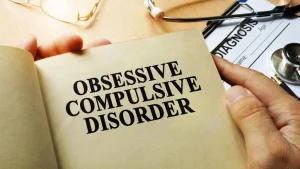Introduction
OCD meaning in medical terms refers to a complex mental health disorder that is often misunderstood. Obsessive-Compulsive Disorder (OCD) affects millions globally, going far beyond the casual reference to “being neat or organized.” This condition involves intrusive thoughts (obsessions) and repetitive behaviors (compulsions), which can significantly impact daily life. This article explores five key facts about OCD meaning in medical terms, including its causes, symptoms, and the importance of early diagnosis, supported by authoritative sources.

What Does OCD Mean in Medical Terms?
In medical terminology, Obsessive-Compulsive Disorder (OCD) is classified as an anxiety disorder. It involves recurring, unwanted thoughts or fears (obsessions) that drive individuals to perform specific rituals or actions (compulsions). These behaviors are often done to reduce anxiety, rather than for pleasure. The OCD meaning in medical contexts highlights how the disorder disrupts the lives of those affected.
For Consultation with the Best Psychiatrist in Delhi for the Best OCD Treatment in Delhi, consider visiting:
5 Key Facts About OCD Meaning in Medical Terms
1. OCD is More Than Being Particular
Contrary to popular misconceptions, OCD meaning in medical terms isn’t limited to being neat or organized. Instead, OCD is a severe mental health condition where obsessions and compulsions disrupt a person’s daily life, work, and relationships. For example, someone might wash their hands repeatedly due to a fear of germs, even to the point of skin irritation.
2. Obsessions and Compulsions Are the Hallmarks of OCD
- Obsessions: These are intrusive and distressing thoughts, images, or urges that the individual cannot easily ignore. Common obsessions include fear of contamination, fear of harming others, or an intense need for symmetry.
- Compulsions: These are repetitive actions or mental acts performed to neutralize or reduce the anxiety caused by obsessions. Examples include excessive cleaning, checking locks repeatedly, or counting items.
3. OCD Has a Biological and Environmental Basis
The OCD meaning in medical contexts often includes its multifactorial origins. Research suggests that OCD is influenced by biological, genetic, and environmental factors. Changes in brain function, family history, and stressful life events all contribute to its development.
For more information on OCD research and causes, refer to the National Institute of Mental Health (NIMH).
4. OCD Can Coexist With Other Conditions
OCD often occurs alongside other mental health disorders such as depression, generalized anxiety disorder, or specific phobias. These co-occurring conditions can make diagnosis and treatment more complex but highlight the importance of a thorough medical evaluation.

5. Early Diagnosis and Support Are Crucial
Early recognition of OCD symptoms can significantly improve outcomes. People with OCD can benefit from evidence-based therapies, such as Cognitive Behavioral Therapy (CBT), which focuses on identifying and altering thought patterns and behaviors. For younger individuals, early intervention through school or community mental health programs is particularly beneficial.
For authorized resources on early diagnosis and intervention, check out the Centers for Disease Control and Prevention (CDC) website.
How OCD Is Diagnosed
Healthcare professionals use specific criteria to diagnose OCD, as outlined in the Diagnostic and Statistical Manual of Mental Disorders (DSM-5). The key diagnostic features include:
- Presence of obsessions, compulsions, or both.
- Significant distress or impairment in social, occupational, or other important areas of functioning.
- The obsessions or compulsions are time-consuming, often lasting more than an hour per day.
The Importance of Spreading Awareness
Spreading awareness about the OCD meaning in medical terms can help reduce stigma and encourage people to seek timely support. Many individuals hesitate to seek help due to misconceptions about OCD. Accurate information and awareness can empower them to take the first step toward recovery.

Conclusion
Understanding the OCD meaning in medical contexts is essential for recognizing the seriousness of the disorder and supporting individuals affected by it. Raising awareness and promoting early intervention can improve lives and foster a more compassionate understanding of mental health.
For further resources on OCD, visit the World Health Organization (WHO).

